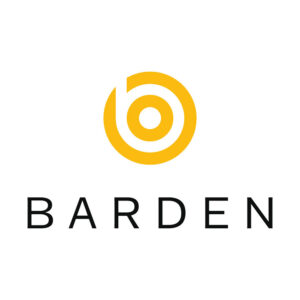When you’re looking for a job, always remember that, while your CV gets you the interview for the job, it’s the interview that will get you the job itself. When we’re hiring someone new into a firm like Deloitte, it’s crucial that they are the right fit for our firm. Skills and experience are important, but we also want to find out what motivates you—your passions, interests, and hobbies—and how they can make an impact within a firm like Deloitte, and with our clients. If you have travelled a lot, for example, this tells us that you have had different cultural experiences, and you could potentially bring these experiences with you to your new role if we decide to hire you.
Here, in the latest article from the new Barden & Chartered Accountants Ireland Career Guide 2023, Michelle Byrne, Partner in Audit and Assurance, leading the Financial Reporting Advisory team at Deloitte Ireland gives us some traps to avoid and tips to help you get ahead at interview and increase your chances of getting that new job:
Don’t Oversell Yourself
Honesty and integrity are crucial. The interviewer will soon discover if your story doesn’t match your CV and, remember, the interviewer will ask you questions based on the information contained in your CV. Your answers should be specific and include examples that demonstrate what drives you as a person and showcase your skillset. If you worked as part of a team, explain how you contributed as an individual, rather than taking personal credit for the team’s achievements.
Don’t Be Vague
Prepare a good opener and a strong closer for your interview. First and last impressions matter. When your interviewer concludes by asking you if there is anything more you want to know about the organisation, use the opportunity to talk about your ambitions. Don’t ask an obvious question when the answer is already available on the organisation’s website. At Deloitte, we’re looking for people who have ambition to grow and pursue their passions through their work. Remember, your interview is your opportunity to ask questions about your potential employer, so don’t be afraid to challenge the interviewer. Don’t give the interviewer answers you think they want to hear. Give them the answers that demonstrate the power of your story.
Don’t Be Nervous
You have been called for this interview because, on paper, you look fantastic. We always encourage our candidates to relax to ensure their confidence shines through. If you don’t appear to be confident in your own abilities, the interviewer is going to find it difficult to decide if you are the right fit for the organisation. At the same time, try not to be too over-rehearsed. I want to know about you, who you are, where you are from, and what you do in your spare time. You don’t want to be too informal, but when you are doing an interview, you are having a conversation with the interviewer as you tell your story.
Do Nail the Basics
Never neglect the basics when you’re interviewing for a new role. How you present yourself, and your body language during the interview, are both very important. Your interviewer will form an opinion of you quickly. If your interview is in-person, your initial handshake will be very telling—and you must be engaging: use direct eye contact at all times and don’t forget your posture. If you sit in a very rigid position, it can make it difficult for the interviewer to build up rapport with you during the interview, so pay attention to this. And you can never be too overdressed when you are interviewing for a professional role. Dress neatly and professionally.
Do Prepare Thoroughly
Once you’ve been invited to interview, it’s important to do your homework in advance so that you know and understand the firm you want to work with, its values and business drivers. If I’m interviewing you, I will want to see how you can demonstrate the impact you can bring to our firm. Equally, I will want to know what you want us to give you as your potential employer, and what you value among colleagues and team leaders. It’s a good idea to do a mock interview with a friend before your formal interview—not your best friend, but someone you would be a little bit nervous sharing your life story with. This will help you to relax on the day of the interview and also to anticipate questions that may take you outside your comfort zone.
Do Build a Rapport
You know there will be other candidates for the job on offer, who will have excellent qualifications and experience, but your interview is your chance to shine and set yourself apart. Try to build a rapport with your interviewer. Ideally, they should leave the encounter feeling that they know you as a person, and that your story has made an impact on them. You will have demonstrated that you share the organisation’s core values and purpose, and that you will help to drive the organisation forward.
Source: Career Guide 2023 by Chartered Accountants Ireland and Barden


 Jump Back
Jump Back

